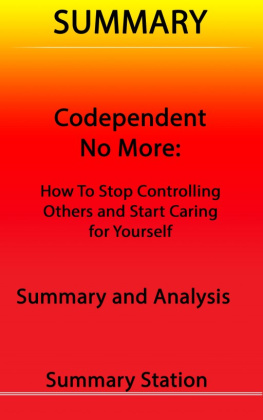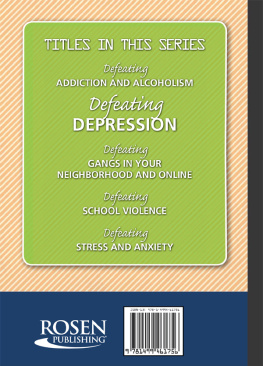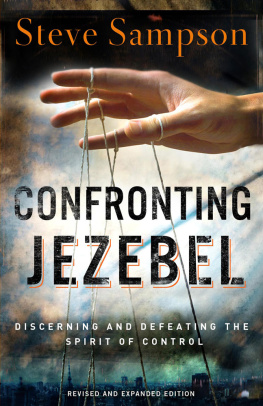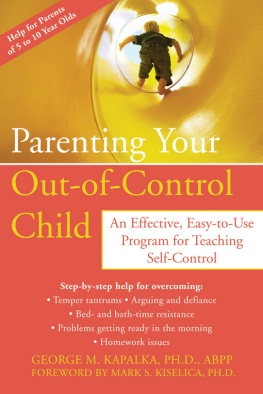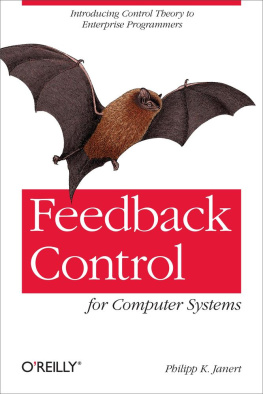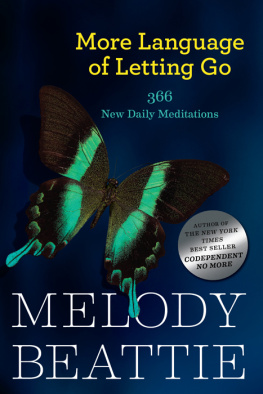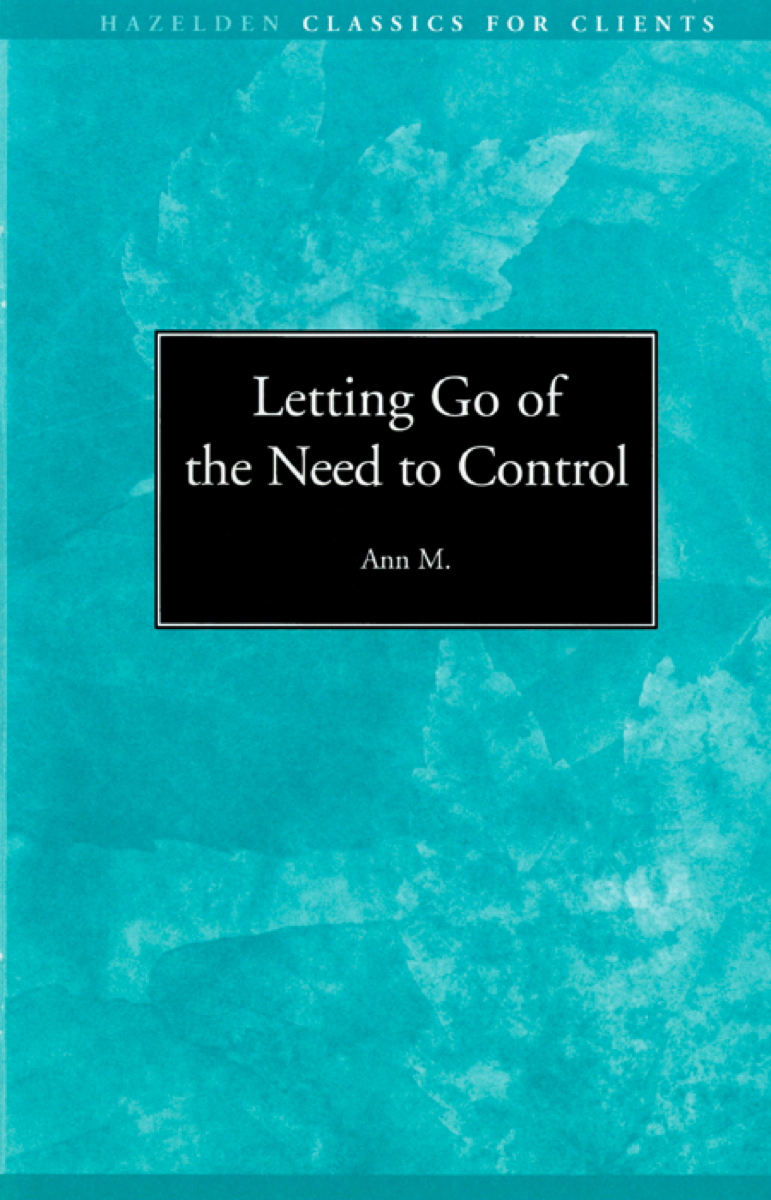Letting Go of the
Need to Control
About the pamphlet
Feeling powerless and acting in controlling ways are characteristics of adult children of alcoholics, chemically dependent people, and those close to them. This pamphlet discusses why we feel and act in these ways, and how we can let go of controlling behavior and learn to trust ourselves and others.
Hazelden Classics for Clients
Letting Go of the
Need to Control
Ann M.

Hazelden Publishing
Center City, Minnesota 55012-0176
800-328-9000
hazelden.org/bookstore
1987 by Hazelden Foundation
All rights reserved. Published 1987
Printed in the United States of America
This published work is protected by copyright law. Unless a statement on the page grants permission to duplicate or permission has been obtained from the publisher, duplicating all or part of this work by any means is an illegal act. Unauthorized copying of this material violates the rights of the publisher and is directly contrary to the principles of honesty, respect, and dignity toward others, which are the foundation of Hazeldens and many of its customers reputations and success.
To request permission, write to Permissions Coordinator, Hazelden, P.O. Box 176, Center City, MN 55012-0176. To purchase additional copies of this publication, call 1-800-328-9000 or 1-651-213-4000.
Any stories or case studies that may be used in this material are composites of many individuals. Names and details have been changed to protect identities.
ISBN-13: 978-0-89486-464-3
ISBN-10: 0-89486-464-5
Ebook ISBN: 978-1-61649-113-0
Cover and interior design by David Spohn
Typesetting by Tursso Companies
INTRODUCTION
I grew up feeling powerless. I felt powerless in a family under the controlling influence of one persons alcoholism and powerless as a woman in a society that values meekness in women. But I am not a powerless person. Its just that my family and my society did not teach me what to do with my power. My feelings of powerlessness led me to try to control the behavior of others. I spent a lot of time feeling confusedwhat I wanted to do didnt match what I was taught I could do. I often got in trouble when I did what felt right, so I learned how to avoid trouble by doing what others wanted me to do.
When I began using a Twelve Step program, I heard a lot of talk about people using behavior to control others. They all seemed to know what this controlling behavior was, and they all seemed to agree there was something wrong with it. At first I didnt understand. When I finally understood, I got mad.
I felt accused of doing something awful. It made me angry. I had been taught to seem powerless, had learned ways to appease my craving for love, attention, and recognition in indirect ways because it wasnt acceptable to want those things, much less ask openly for them. But I was now being told it was my own sick, controlling behavior that made others miserable and kept me from feeling close to them. Something inside me screamed, Not fair! Not fair! How could anyone judge what I should be like? They werent me.
It took me a long time to realize that to be controlling was just ineffective. It was keeping me from feeling close to others, and I was tired of feeling responsible for everyone and everything. Maybe this had something to do with my chronic unhappiness. So I began to listen in meetings. I began to learn about how I controlled others. I began to think about letting go of the old habits and letting my powerful self show. Times had changed. Maybe now I would be supported for being open and powerful. I would try it and see.
My Twelve Step program changed my life by showing me how to use my power constructively. I am a believer nowthe program does work. It can help us see that we have the power to shape our own lives and that our happiness comes from within ourselves. But I want to tell you how I felt in the beginning, just in case you are also someone who tries to do the best you can with what you have, and feel angry because it still isnt okay.
ME, CONTROLLING?
I remember the day someone accused me of being controlling during a staff meeting at work. During the meeting, a co-worker asked me to pick up one of her clients at the airportan inconvenient and demeaning assignment, something I did not want to do. Furious at her for asking me, I nevertheless found myself agreeing to meet the plane. I felt hurt, trapped, and belittledand apparently no one in the room cared. I looked down at my notebook and stopped participating in the meeting.
Suddenly, my boss confronted me. Youre controlling everyone in this room, she said. You havent said a word, but youve had everyones attention for the last ten minutes. You know it tooyoure grinning. To my surprise and embarrassment, she was rightI felt like laughing. Im tired of your anger, and Im tired of being controlled by you, she went on. If you used that energy positively instead of negatively, you could be a really powerful person. As it is, were always trying to figure out why youre angry, and Im tired of it.
I was stunned. Powerful? Angry and controlling? Me? I didnt understand. I felt small and unacceptable. But why had I also felt like laughing?
That incident was a turning point for me. I saw I could affect others with my behavior even when I didnt consciously mean to do so, even when I felt helpless. I couldnt deny the accusation that I was angry and that I had everyones attention. And something else was true: Deep down inside I knew I was powerful. It was just more acceptable to seem helpless.
In that staff meeting, I found out that I could indeed be controlling. More important, I discovered what it felt like to control. I hadnt known I was trying to control anyone at the time, but I had known the feeling before: a confusion of panic-hurt-anger that paralyzed me. I needed to withdraw and at the same time I wanted attention. I felt wronged. I experienced a strong urge to punish those who hurt meand naughty-child glee when I succeeded.
NEEDING TO CONTROL
Chemically dependent families are those in which one or more members are addicted to a chemical; dysfunctional families have some underlying problem that prevents effective communication among family members. For those of us who grew up in chemically dependent or other types of dysfunctional families, control is an important issue in relationships. We grew up with the sense that things were out of control, that our needs came after the needs of others, that life revolved around an unpredictable, often out-of-control person or situation. We longed to trust those we loved, but they often let us down, hurt us, ignored us, or blamed us for things that went wrong. We tried to keep things from going wrong by being in control, by controlling others, by arranging and managing. We learned to hide and deny our feelings, to put others needs first, and to use covert means to get what we needed from others. As adults, we are often afraid of being controlled or afraid of losing control. We unconsciously try to control events and people around us in order to feel secure. We find it hard to feel close to people, and they find it hard to get close to us.
Unconsciously needing to be in control is compulsive. We are often unaware we have such a need, we dont know how to get rid of it, and we are surprised when others point it out. We are quick to think of examples in which controlling others is reasonable. After all, when a child steps into a busy street, or when we are approached by a violent attacker and we act to control the situation, isnt that good?


